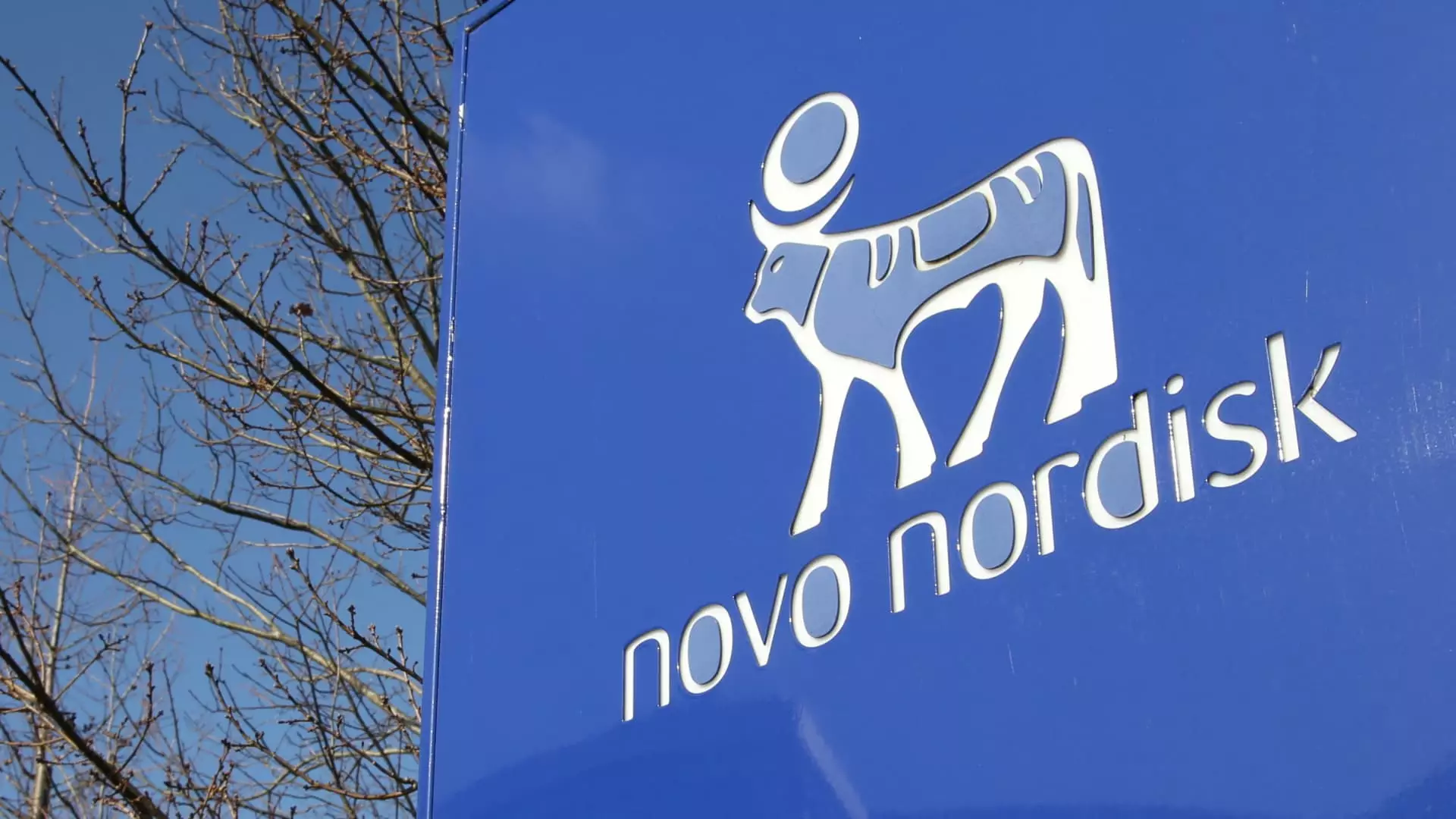Novo Nordisk, once a shining star in the pharmaceutical universe, is currently grappling with a troubling reality as it faces backlash for the unimpressive results of their obesity treatment, CagriSema. In an industry that thrives on groundbreaking advancements, the expectation was set high for this next-generation drug. As a combination of cagrilintide and semaglutide—two compelling contenders in weight management—CagriSema was heralded as a game-changer. Yet, with the latest trials revealing only a 15.7% weight reduction over 68 weeks, expectations were shattered. Investors anticipated numbers in the high-teens, and the resultant drop in share price has sent waves of concern rippling through the market.
The harsh truth is that the pharmaceutical industry often operates like a high-stakes gambling arena, where the stakes are someone’s health and hope for change. CagriSema’s poor performance in clinical trials exposes not only the failure of Novo Nordisk to deliver on its promises but also the palpable disillusionment within the healthcare landscape regarding obesity treatments. It raises an essential question: Are these pharmaceuticals losing touch with the real-world implications of their trials, or are they simply overpromising to maintain investor enthusiasm?
Challenges with Communication and Transparency
CEO Lars Fruergaard Jørgensen’s attempt to reassure shareholders during a recent Annual General Meeting fell somewhat flat. His insistence on the drug’s potential rings hollow when anchored in the reality of unmet expectations. The criticism directed toward Novo Nordisk highlights a fundamental issue in the communication of trial findings. It’s one thing to boast of new innovations; it’s another to deliver unvarnished truths about their efficacy.
There exists a growing demand for transparency in drug development, especially regarding trial designs that affect tolerability and dose escalation. The fact that fewer than two-thirds of participants reached the maximum dosage raises critical questions about patient engagement and adherence. Outcomes presented in clinical trials should align closely with the everyday challenges faced by potential users. If Novo Nordisk wishes to reshape its narrative, it needs to pivot from hyperbole to honesty, embracing the uncertainties and complexities that define the obesity treatment landscape.
Investor Sentiment and Stock Market Reactions
Investors, understandably, are anxious and frustrated. The downward trend of Novo’s share price—plummeting over 50% since the highs of 2024—illustrates the investment community’s reaction to unmet promises. With both CagriSema and its rival Eli Lilly’s Zepbound, the quest for a superior alternative to existing GLP-1 medications has only intensified. This dramatic turn of events sends a strong signal about the volatility of the pharmaceutical market when aspirations don’t materialize into concrete results.
The implications extend beyond investor sentiment and stock fluctuations—they touch upon the broader dialogue surrounding obesity treatments. As analysts weigh in, some are calling for a more cautious approach to drug differentiation. This begs the question: are we entering an era where hype overshadows substance? If industry leaders continue to miss their targets, can we expect patience from shareholders or, more critically, from those struggling with obesity who are yearning for effective solutions?
The Future of Obesity Treatment
Despite CagriSema’s disappointing results, there is an underlying belief among some industry experts that it still holds promise. Novo Nordisk’s ongoing Phase 3 trial, REDEFINE 11, signals their commitment to advancing this product. Yet the road ahead is fraught with risks. The mosaic of obesity treatment will require a diverse spectrum of options. After all, patients are not a monolithic group; their medical needs vary significantly, as do their responses to different treatments.
What’s apparent is that polarization within the weight-loss industry must be addressed—balancing innovative pharmaceuticals with patient-centric approaches and understanding that what works for one individual may not work for another. Advancements in obesity medications should facilitate choice, addressing not just weight but also associated health risks such as cardiovascular diseases, sleep apnea, and liver conditions.
Novo Nordisk finds itself at a crossroads; whether it chooses to recalibrate its strategies in light of its recent failures may ultimately dictate its future trajectory in the healthcare sector.


Leave a Reply